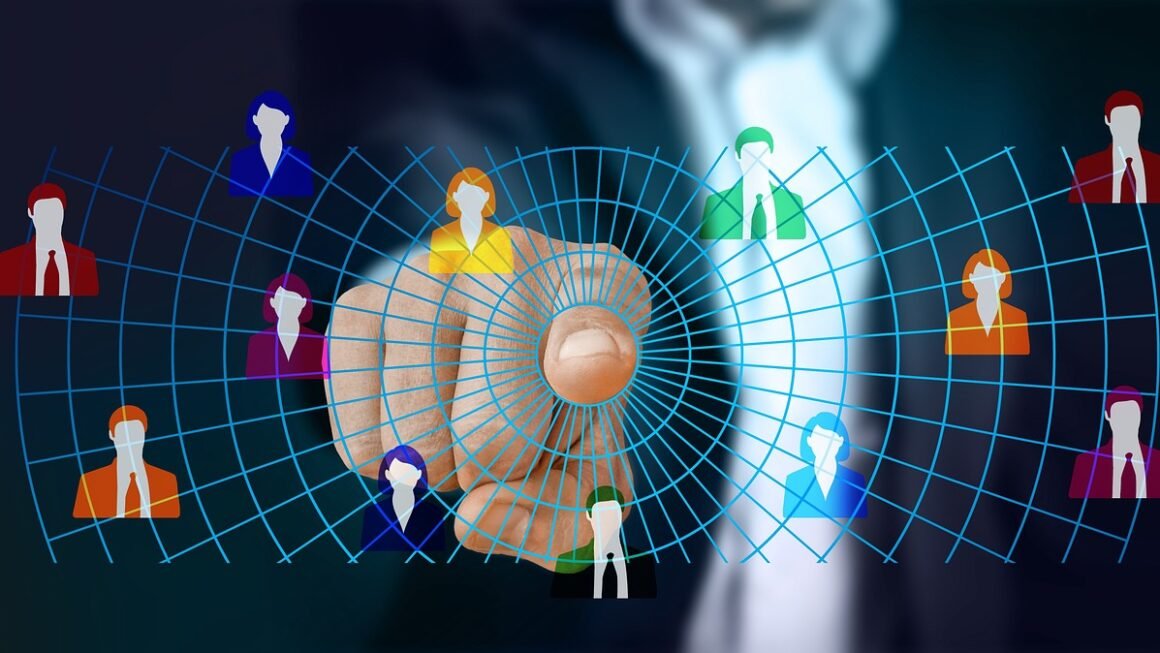Imagine a world where tasks are automated, decisions are optimized, and information is readily available, all thanks to the power of intelligent agents. These digital entities are rapidly transforming industries and reshaping our interactions with technology. This blog post delves into the intricacies of intelligent agents, exploring their definition, types, applications, and the future they promise.
What are Intelligent Agents?
Definition and Key Characteristics
Intelligent agents are autonomous entities that perceive their environment, reason about it, and take actions to achieve specific goals. They can be software programs, robots, or even human-computer interfaces. Their core characteristics include:
- Autonomy: They operate independently without direct human intervention.
- Perception: They gather information from their environment through sensors or data inputs.
- Reasoning: They process information to make decisions and plan actions.
- Learning: They improve their performance over time through experience.
- Goal-Oriented: They are designed to achieve specific objectives.
Distinguishing Intelligent Agents from Traditional Software
While traditional software executes pre-programmed instructions, intelligent agents exhibit a degree of adaptability and decision-making. Here’s a comparison:
- Traditional Software:
Static and predictable behavior
Follows a fixed set of rules
Requires explicit programming for each scenario
- Intelligent Agents:
Dynamic and adaptive behavior
Can learn and adjust their strategies
Handles unexpected situations through reasoning
For example, consider a spam filter. A traditional filter might block emails based on a pre-defined list of keywords. An intelligent agent-based filter, however, can learn from user feedback (e.g., marking emails as spam) and adapt its filtering rules accordingly, becoming more accurate over time.
Types of Intelligent Agents
Simple Reflex Agents
These are the most basic type of intelligent agent. They react directly to perceptions based on a simple “if-then” rule set. They lack memory and cannot consider past actions.
Example: A thermostat that turns on the heater when the temperature drops below a certain threshold.
Model-Based Reflex Agents
These agents maintain an internal model of the world, representing aspects that are not directly visible. This model allows them to make more informed decisions based on incomplete information.
Example: An autonomous vehicle that uses sensor data and a map to navigate, even when visibility is limited.
Goal-Based Agents
Goal-based agents have a specific goal or set of goals that they try to achieve. They use their model of the world and knowledge of possible actions to plan a sequence of steps to reach their goal.
Example: A route planning application that finds the optimal route between two points, considering factors like distance, traffic, and fuel efficiency.
Utility-Based Agents
Utility-based agents go beyond simply achieving a goal; they aim to maximize their “utility,” which is a measure of their satisfaction or well-being. They consider the costs and benefits of different actions and choose the one that provides the highest overall utility.
Example: A stock trading bot that aims to maximize profit while minimizing risk, considering various market factors and investment strategies.
Learning Agents
Learning agents can improve their performance over time by learning from their experiences. They have a learning element that modifies their knowledge or behavior based on feedback.
Example: A recommendation system that learns your preferences based on your past purchases and browsing history, and uses this information to suggest relevant products.
Applications of Intelligent Agents
Healthcare
Intelligent agents are revolutionizing healthcare in various ways:
- Diagnosis and Treatment Planning: AI-powered systems can analyze medical images and patient data to assist doctors in diagnosing diseases and developing treatment plans. Studies show that AI-assisted diagnosis can improve accuracy by up to 30% in certain cases (Source: Journal of American Medical Informatics Association).
- Personalized Medicine: Agents can tailor treatments to individual patients based on their genetic makeup, lifestyle, and medical history.
- Remote Patient Monitoring: Wearable sensors and intelligent agents can monitor patients’ vital signs and alert healthcare providers to potential problems.
E-commerce
In the realm of e-commerce, intelligent agents enhance the shopping experience and streamline operations:
- Recommendation Systems: Agents suggest products based on user preferences and browsing history, increasing sales and customer satisfaction.
- Chatbots: Customer service chatbots provide instant support, answer queries, and resolve issues, improving customer engagement.
- Price Optimization: Agents analyze market trends and competitor prices to dynamically adjust pricing strategies, maximizing revenue.
Finance
Intelligent agents play a crucial role in the financial industry:
- Fraud Detection: AI-powered systems can identify fraudulent transactions by analyzing patterns and anomalies, protecting financial institutions and customers.
- Algorithmic Trading: Agents execute trades based on pre-defined rules and market conditions, optimizing investment strategies.
- Risk Management: Agents assess and manage financial risks by analyzing market data and economic indicators.
Manufacturing
In manufacturing, intelligent agents contribute to automation and efficiency:
- Predictive Maintenance: Agents analyze sensor data from equipment to predict potential failures, allowing for proactive maintenance and reducing downtime.
- Robotics: Robots equipped with intelligent agents perform tasks such as assembly, inspection, and packaging, increasing productivity and reducing costs.
- Supply Chain Optimization: Agents optimize supply chain logistics by analyzing demand, inventory levels, and transportation costs, ensuring timely delivery and minimizing waste.
Building Intelligent Agents
Key Technologies and Frameworks
Developing intelligent agents involves various technologies and frameworks:
- Artificial Intelligence (AI): The foundation of intelligent agents, encompassing machine learning, deep learning, and natural language processing.
- Machine Learning (ML): Algorithms that allow agents to learn from data and improve their performance over time. Popular ML libraries include TensorFlow, PyTorch, and scikit-learn.
- Deep Learning (DL): A subset of machine learning that uses artificial neural networks with multiple layers to analyze complex data.
- Natural Language Processing (NLP): Enables agents to understand and process human language, facilitating communication and interaction.
- Robotics: Integrates hardware and software to create physical agents that can interact with the real world. Robotics frameworks include ROS (Robot Operating System).
Steps in Developing an Intelligent Agent
The process of building an intelligent agent typically involves these steps:
Challenges and Considerations
Developing intelligent agents presents several challenges:
- Data Availability and Quality: Accurate and comprehensive data is crucial for training effective agents.
- Algorithm Complexity: Designing and implementing complex machine learning algorithms can be challenging.
- Ethical Considerations: Ensuring that agents are used responsibly and ethically, avoiding bias and discrimination.
- Security: Protecting agents from malicious attacks and ensuring the privacy of sensitive data.
The Future of Intelligent Agents
Emerging Trends and Technologies
The field of intelligent agents is rapidly evolving, with several emerging trends shaping its future:
- Edge Computing: Deploying agents on edge devices (e.g., smartphones, IoT devices) to process data locally and reduce latency.
- Explainable AI (XAI): Developing agents that can explain their decisions and actions, increasing transparency and trust.
- Federated Learning: Training agents on decentralized data sources without sharing the data itself, preserving privacy and security.
- Human-Agent Collaboration: Designing agents that can work effectively with humans, augmenting their capabilities and improving decision-making.
Impact on Industries and Society
Intelligent agents are poised to have a profound impact on various industries and society as a whole:
- Increased Automation: Automating repetitive tasks and processes, freeing up human workers to focus on more creative and strategic activities.
- Improved Decision-Making: Providing data-driven insights and recommendations to support better decision-making.
- Enhanced Efficiency: Optimizing processes and resource utilization, leading to increased productivity and reduced costs.
- Personalized Experiences: Tailoring products and services to individual needs and preferences, enhancing customer satisfaction.
According to a report by Gartner, by 2025, AI-powered intelligent agents will handle 70% of customer interactions, leading to significant cost savings and improved customer experiences.
Conclusion
Intelligent agents are transforming how we interact with technology and conduct business. From automating routine tasks to providing personalized experiences, their applications are vast and growing. By understanding the different types of intelligent agents, the technologies behind them, and the challenges involved in their development, we can harness their power to create a more efficient, productive, and personalized world. As the field continues to evolve, it’s crucial to address ethical considerations and ensure that these powerful tools are used responsibly for the benefit of society.



